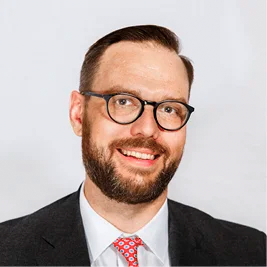Is it Really Addiction? How to Know When You Have a Problem
Drug and alcohol addiction is pervasive in American society: According to the National Institutes of Health, roughly 10% of Americans have had a drug use disorder at some point in their lives, and nearly 30% have struggled with alcohol abuse. What’s more, only 20 to 25% of them ever received any kind of addiction treatment care. Substance use disorder is a serious disease that deserves comprehensive medical treatment, but how do you know if it’s really addiction? How can you know when your drinking or drug use is a problem?
What is Addiction?
Our understanding of addiction has evolved rapidly in recent decades, but we’ve known for quite some time that addiction is a disease — and not a lack of willpower in those who suffer. As early as the very first DSM (the American Psychiatric Association’s Diagnostic & Statistical Manual of Mental Disorders) addiction was listed as a disease. Back then, it was categorized as part of “sociopathic personality disorders” and defined addiction as consuming “intake great enough to damage physical health” or “personal or social functioning.” Getting drunk four to twelve times a year was categorized as “episodic excessive drinking,” and becoming intoxicated once a month or more was “habitual excessive drinking.”
Today, the DSM is on its fifth edition and the definition of addiction has changed quite a bit. When the DSM-5 was published in 2014, it combined drug and alcohol abuse and dependence into one category, “substance use disorder.” What’s more, the current DSM does not focus on the specific “intake” when categorizing the severity of the disease. Under the current definition of addiction, someone who drinks a bottle of wine each night could be in more trouble than someone who drinks two. Defining addiction today is more about looking at the impact that substance use creates.
If your drug or alcohol use is having a negative effect on any aspect of your life, but you still continue the behavior, addiction could be at play.
Compulsion & Addiction
This symptom of addiction is often called “compulsion.” It’s the part of the disease that makes you stay out until 2 in the morning drinking the night before a job interview, even though you said you’d only have just one. It’s what pushes you to text your dealer even when every cell in your body seems to say you shouldn’t. For far too long, we believed that people struggling with substance abuse just didn’t have the willpower to face down their cravings and temptations. Today, we know that compulsion to act against your best interests is literally a symptom of the disease of addiction, caused by measurable changes in your brain.
Obsession & Addiction
At the same time, addiction causes those in its grips to experience “obsession” related to their drug of choice. This is the feeling you get when you’ve ordered your first glass of wine and can’t focus on the dinner table conversation because you’re scanning the restaurant looking for your waiter. Or, when you keep an eye on the level of the bottle throughout dinner to make sure you get your fair share. It’s the urge to rummage through every bag you own in the hopes that you’ll find an extra serving of your drug of choice.
Many people struggling with substance use disorder come to accept the obsession as part of daily life. One of the gifts of recovery, however, is the fact that this obsession can be entirely removed.
Getting Help for Addiction
Making the decision to get help for addiction is up to you — until a judge, boss, or doctor makes the decision for you. If you’re still not sure, ask the experts. Give our admissions team a call. They’d be happy to listen to your situation and provide feedback on whether addiction treatment would be right for you — no pressure and no commitment. You deserve to experience the renewal and reconnection of recovery from addiction.
Take the first step to transforming your life.

Dr. Pickrell is a board-certified psychiatrist with interests in addiction and psychiatry. He strives to identify the underlying cause of substance use. His understanding of addiction as the overlapping symptoms of biopsychosocial development is the foundation to his care model. He is committed to helping both patients and families understand that addiction is a treatable medical illness. He has been involved in the treatment of addiction for the last 17 years and completed his residency training at the University of Utah.










